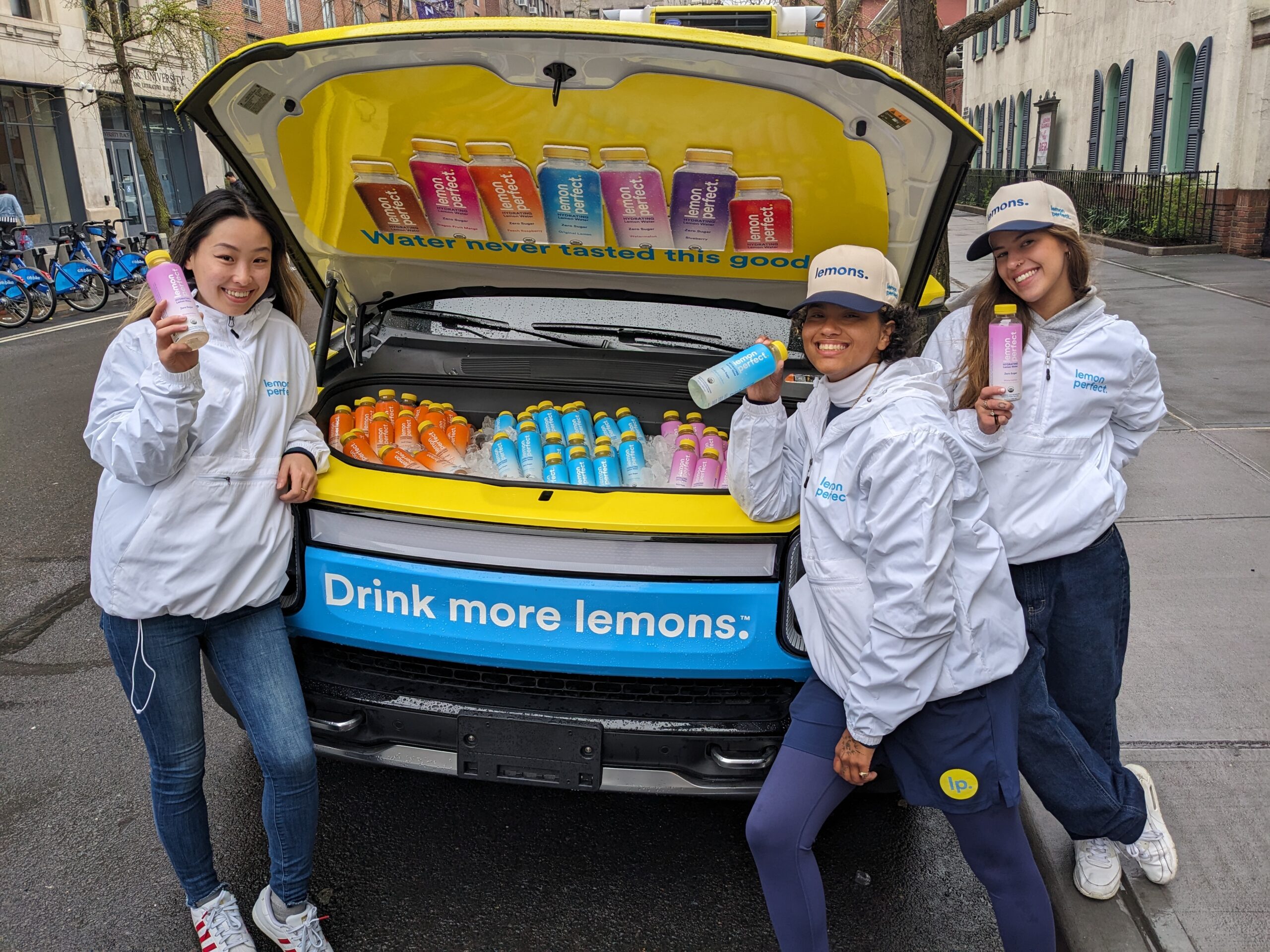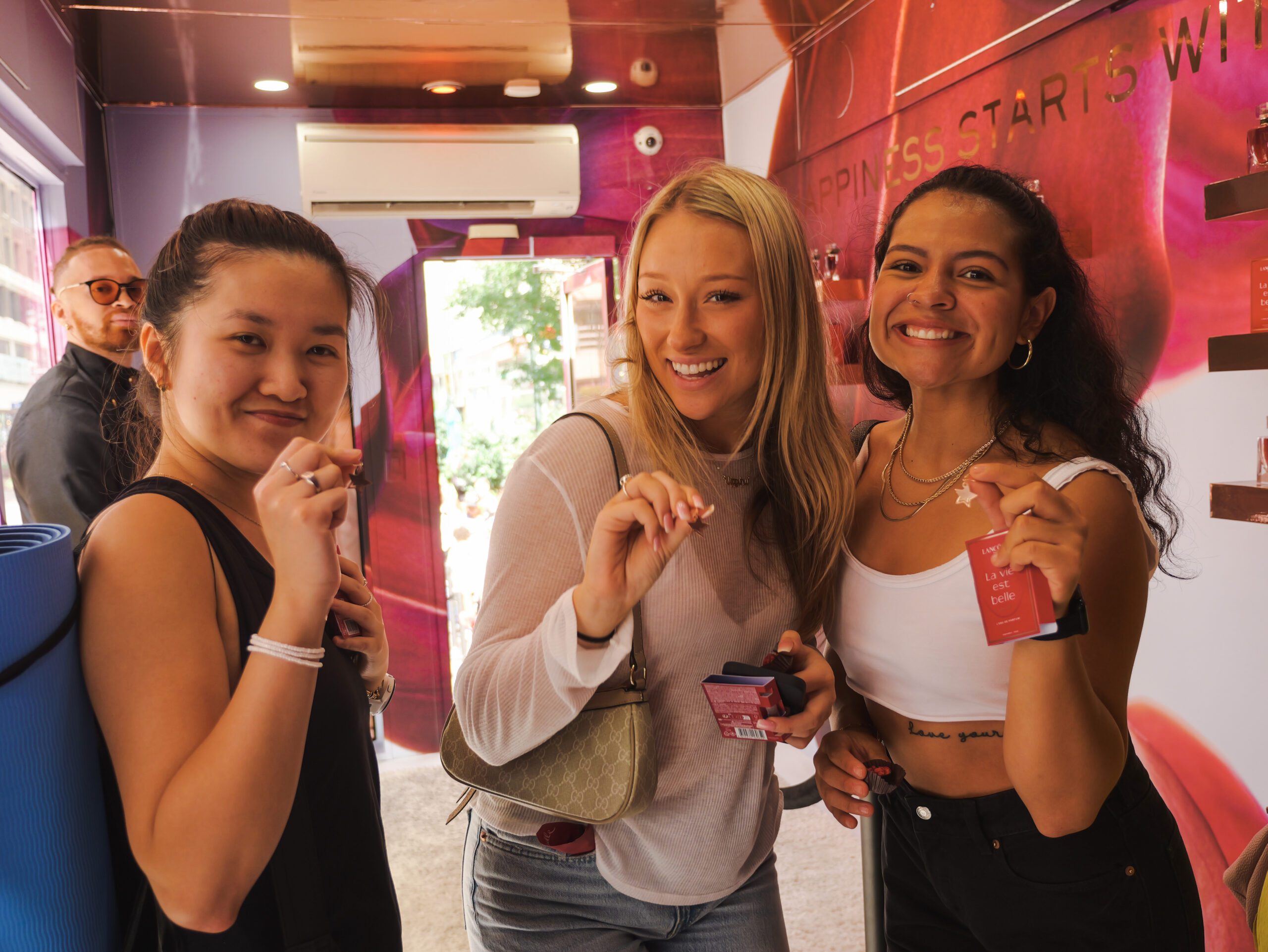
- Field Marketing
Building Your Brand’s Field Marketing Team
As more and more consumer packaged goods (CPG) brands venture out into experiential marketing as a way of connecting with consumers, they’re having to grapple with questions like, “Who’s going to do all this work?”
It might sound funny, but although field marketing looks relatively straightforward — choose location, put goods and staff there, create memorable interactions with customers, track outcomes — the number of moving parts is staggering and requires considerable time and attention to pull off.
Brands have responded by building in-house field marketing teams, sometimes to great success, sometimes to disappointing results. What’s right for your brand — in-house field marketing team or field marketing agency? Here are some tips to help make that decision easier.
What Is Field Marketing?
Field marketing is the branch of marketing that focuses on “out in the field” activities that put products and services directly in front of consumers. Regardless of the medium, the goal is to create direct, face-to-face interactions with potential customers to build brand awareness, generate leads, and drive sales.
The ”field” in this case includes retail locations, festivals, concerts, sporting events, college campuses, busy intersections, trade shows, retail centers, and other public places consumers gather in or pass through.
Field marketing encompasses all of the strategies we call experiential — brand activations, pop-ups, mobile marketing tours, street teams — along with tactics like product sampling, demonstrations, giveaways, interactive elements, and more.
Field marketing in all its forms comes down to putting the brand’s products in front of customers, in one-on-one, face-to-face interactions designed to delight, intrigue, inform, and ultimately connect with them on a deep and memorable level.
The work of doing field marketing involves planning events, researching locations, applying for permits, creating customer personas, designing sets and swag, working out the details of sampling and activities, hiring ambassadors, and a great many more details unique to every brand, location, and event.
So, Who Does That Work?
There are essentially two models for brands looking to create a field marketing team:
- Do it all in-house
- Hire an agency with field marketing expertise
Here’s how they compare.
In-House Field Marketing Teams
An in-house field marketing team, as opposed to an agency, consists of people who are directly employed by the brand. Many brands seek to hire the expertise they lack by building their own in-house field marketing teams, which consist of several different but often overlapping roles, says a blog post on repsly.com:
- a field marketing representative, a marketing generalist who does everything from conducting demos to acting as liaison between buyers and sellers
- a field marketing manager, “responsible for hiring, training, and directing their field teams, as well as ensuring field marketing campaigns achieve their intended goals”
- brand ambassadors who are paid to promote, endorse, or in other ways represent a brand or product; in large companies, these might include celebrities to represent the product to their fans and followers
- street team representatives, aka “brand champions,” aka “boots on the ground” who hand out fliers, stickers or products to crowds
Pros of Forming an In-House Team
Focus, flexibility, and control: An in-house team is by definition focused solely on your company, unlike an agency, which serves other clients, too. An in-house team moves with the brand — always available when needed, available to act quickly and in perfect sync with brand values and needs.
“In-house marketing teams live and breathe your brand day in day out,” says bannerflow.com. “Therefore, it naturally follows they’ll have an intrinsic understanding of your branding and creative process.”
Deep brand/industry knowledge: An in-house team builds a deep understanding of your industry and your brand, its products, and its values, along with what differentiates it from competitors, says an article on digitaldelane.com. If your field marketing requires highly specialized knowledge of your industry, an in-house team might be better suited to maintain consistency.
Long-term brand building: For ongoing, strategic field marketing initiatives where a close relationship with your brand is crucial, an in-house team could be more effective.
Cons of Forming an In-House Team
Cost and effort: Recruiting, hiring and maintaining a team of field marketing pros won’t be cheap. Considerable time and money goes into recruiting and hiring efforts, and many brands find it’s easier and cheaper to shift that burden away from the brand by hiring an agency. A typical field marketing team can run $1 million to $3 million per year to maintain.
Seasonality: A related concern is that most brands don’t need field marketing year-round — there’s considerable seasonality to CPG experiential marketing strategies like product sampling, which thrive in spring and summer and slow to a crawl in cold weather. Maintaining an in-house team simply might not make financial sense. It’s important to weigh the costs of 12 months of full-time salaries against the expense of paying an agency to do field marketing when it’s needed.
Field Marketing Agencies
A field marketing agency fills the same roles as an in-house shop, but the professionals who work with the brand don’t work for the brand. They’re recruited, hired, trained, and managed by the agency — a considerable load removed from the brand’s plate.
A good agency will operate as if they are an in-house team with full progress reports, tracking goals and KPIs across the entire campaign. With Promobile Field Marketing, the brand can work with the same team for future sampling or other CPG field marketing campaigns to hit the ground running on the next campaign.
Pros of Hiring an Agency
Diversity of skills, expertise, and experience: To put it simply, field marketing agencies know what they’re doing because they’ve done it before. This benefits the brand in many ways. Field marketing agencies typically have access to networks of vendors, suppliers, and potential team members. They also know the specifics of state and local laws, regulations, and permitting requirements. Need to build a street team in a location 700 miles away? Acquire permits for a mobile activation in a city on the opposite coast? A field marketing agency will have the connections and know-how to do both quicker and easier than in-house marketers. Agencies often have established relationships with vendors, venues, and other partners which can be beneficial for finding the right resources quickly.
Expertise: Planning and executing a field marketing campaign requires a level and type of marketing expertise that’s beyond the scope of most brand managers, not to mention more time-consuming than their other responsibilities may allow. Hiring an agency for field marketing can be a good choice if the brand needs a diverse team of experts with specialized skills, especially if the brand needs to rapidly execute a campaign across multiple locations; however, it’s important to consider your budget and specific needs before making a decision.
Scalability: One of the great strengths of field marketing agencies is scalability. An agency has the capability of increasing the number of staff as needed to accomplish the campaign’s goals. The brand can easily adjust the size of the field marketing team based on project needs and the team’s advice without the overhead of hiring and managing full-time employees.
Data-driven insights: Agencies are skilled at leveraging analytics and reporting tools to measure campaign performance and make data-backed adjustments.
Fresh perspective: An external agency can bring new ideas and approaches to your field marketing strategy, helping to identify potential blind spots.
Where to Begin?
Start by understanding what field marketing means for your brand and your target audience: what strategies and tactics will be most effective, what they’ll cost, how to implement. Next, work from there to determine who’s best equipped, informed, and experienced to pull off a field marketing function — does the brand have the talent and resources in-house, can it hire individuals to do the job, or is the right move hiring a field marketing agency?
Promobile Marketing is a dynamic experiential marketing agency based in New York City. For over a decade, Promobile Marketing has collaborated with a range of brands—from budding startups to major CPG brands—on immersive marketing campaigns. Get in touch to discuss your next project.


